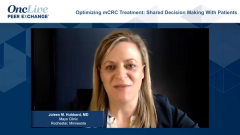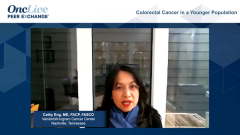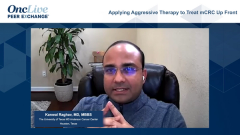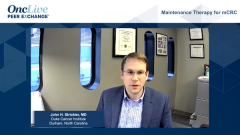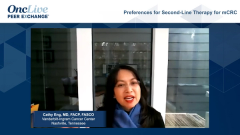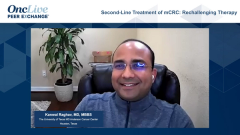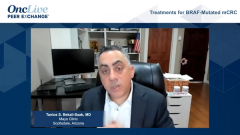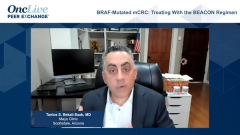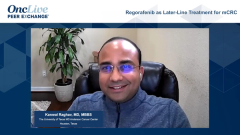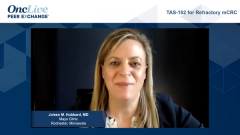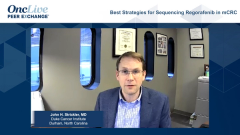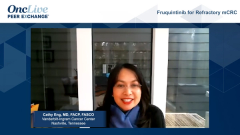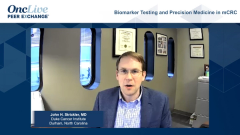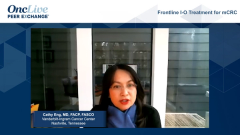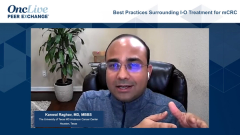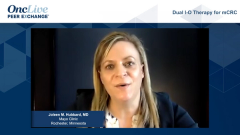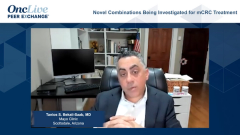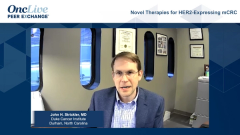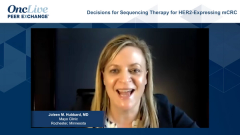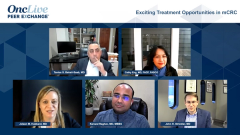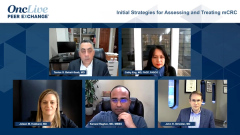
Fruquintinib for Refractory mCRC
Expectations regarding the use of fruquintinib, an oral VEGF tyrosine kinase inhibitor, as third-line therapy for metastatic colorectal cancer.
Episodes in this series

Tanios S. Bekaii-Saab, MD: I want to finish off this discussion by having Cathy talk to us about this new interesting agent called fruquintinib. In China, there was a phase 3 trial that looked positive and you've been pivotal to take this agent forward into the US, leading the phase 3 study. Is this another regorafenib, is it different? Tell us more about it.
Cathy Eng, MD, FACP, FASCO: Thank you. I want to emphasize that this phase 3 trial was created with my former mentee and colleague Arvind Dasari, MD, at The University of Texas MD Anderson Cancer Center. He was a colleague of Dr Kanwal P.S. Raghav, MBBS, MD. This is based upon the data from China looking at FRESCO-2. Fruquintinib is a selective oral inhibitor that VEGF [vascular endothelial growth factor] receptors 1, 2, and, 3. This trial was completed in China and it was with patients who were failed by all starter lines of therapy. Although, in China, only 30% of patients had prior bevacizumab. They noticed an improvement of almost 3 months for overall survival, this was a similar study design 2:1 ratio versus placebo and also improved progression-free survival almost double. That's why it was improved in China.
The FRESCO-2 trial is validating that product in a US and international trial, hoping for EMA approval. Two-to-one randomization as well and requires either prior TAS-102 [trifluridine, hydrochloride] or regorafenib and/or both. Common end points overall survival, similar toxicities expected for any anti-VEGF therapy with hypertension being the main thing. It is the only phase 3 trial currently. It's another option for patients and it is more selective. Nothing against regorafenib, but it is more selective for the VEGF receptors 1, 2, and 3.
Tanios S. Bekaii-Saab, MD: Thank you, Cathy. To wrap this up, Joleen you were one of the lead investigators on the Phase 2 study. You had quite a few patients on it. Any thoughts about fruquintinib?
Joleen M. Hubbard, MD: In terms of tolerability?
Tanios S. Bekaii-Saab, MD: Overall, what's your overall impression? That data has been presented already.
Joleen M. Hubbard, MD: The tolerability was good. I had patients say fatigue was their biggest issue. A lot of patients didn't have any adverse effects, which was nice. We had a couple of long-term responders and I'm excited for the phase 3 because I'm hopeful that it will provide yet an even better-tolerated option in that chemorefractory setting.
Transcript Edited for Clarity


